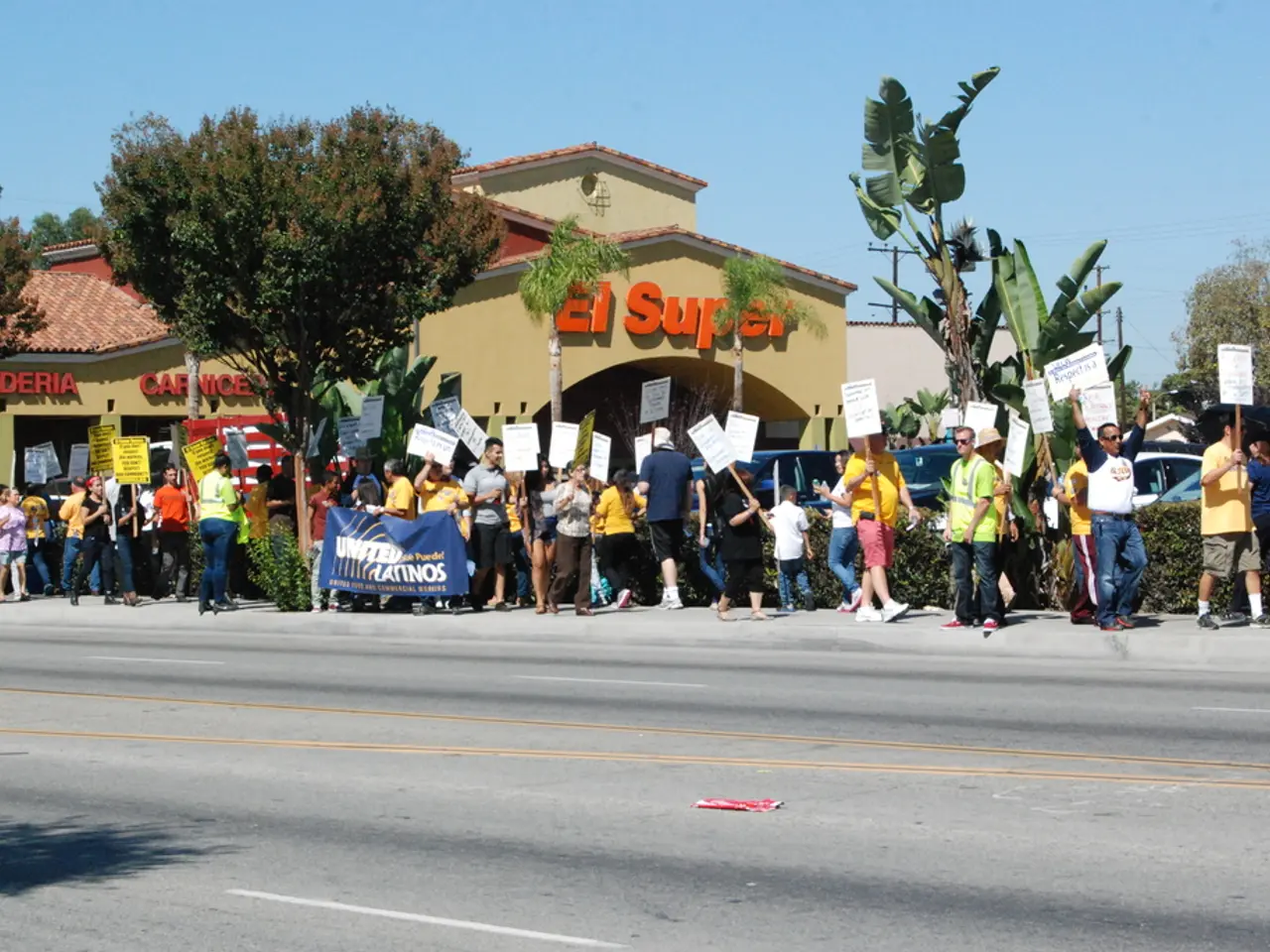Germany's ADA party regains prominence as the most favored in Federal Republic.
In a significant shift in German politics, the Alternative for Germany (AfD) has become the most popular political party in the country, surpassing the Christian Democratic Union/Christian Social Union (CDU/CSU) [1][2][4]. This development is largely due to rising public dissatisfaction with the current government, particularly Chancellor Friedrich Merz’s leadership, and the party’s strong support in eastern Germany.
According to the latest available data, AfD's approval rating has risen by 1% to 26%, while CDU/CSU support has fallen by 1% to 24% [1][2][4]. This marks CDU/CSU's worst results since 2021.
One key reason for AfD's rise is discontent with the ruling coalition, which comprises CDU/CSU and the Social Democrats (SPD). After 100 days, 67% of Germans were unhappy with Merz’s performance, particularly as he focused on foreign policy issues like the Ukraine war and relations with the US, while domestic concerns grew [4].
The AfD has also gained a dominant foothold in the former East German states, such as Thuringia, Brandenburg, and Saxony, winning nearly a third of votes or more, and even becoming the first far-right party since the Nazi era to lead a state election (Thuringia 2024) [3][5]. This regional base is crucial to its electoral strength.
The party capitalizes on public frustration with the status quo, appealing especially to voters who feel left behind economically and socially. Their platform includes economically liberal policies with some neoliberal emphasis and calls for limited state intervention, as well as nationalist and right-wing populist stances [3][5].
This rise mirrors a broader right-wing populist surge across Europe, with similar parties gaining ground in France (National Rally), Austria (Freedom Party), and other countries [2][4].
Meanwhile, the Social Democratic Party of Germany's popularity has remained relatively stable, with a level of 13% [1][2][4].
Recently, the AfD has demanded a review of payments for Ukrainian refugees in Germany [6]. However, further details about this demand were not provided.
This shift in German politics is a recent development and presents a significant challenge for Merz and the CDU/CSU as they navigate the changing political landscape.
[1] RIA Novosti, citing a German media outlet [2] ZDF [3] The Guardian [4] Deutsche Welle [5] The New York Times [6] ZDF
- The recent surge in popularity for the Alternative for Germany (AfD) has been attributed to discontent with the current policy-and-legislation and politics in Germany, particularly under Chancellor Friedrich Merz's leadership.
- The AfD's rise in the German political landscape can be seen in their strong support in general-news areas such as the former East German states, where they have gained a dominant foothold and have even led state elections in Thuringia.







